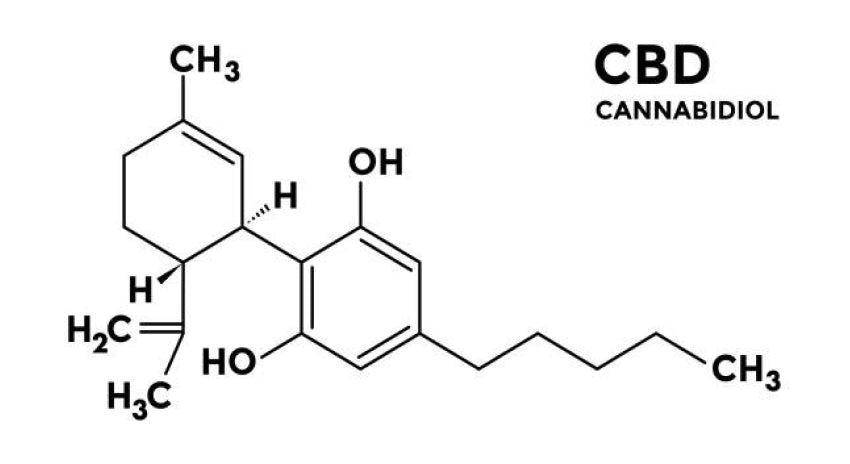
CBD, or cannabidiol, offers a wide range of potential health benefits. It has been studied for its ability to alleviate pain, reduce inflammation, and provide relief from anxiety and stress. CBD may also have neuroprotective properties, making it promising for conditions like epilepsy and neurodegenerative diseases.

Additionally, it can promote better sleep, act as an antioxidant, and potentially support cancer treatment. While more research is needed to fully understand its effects, CBD shows great promise as a natural remedy for various health concerns. However, it's important to consult with a healthcare professional before incorporating CBD into your wellness routine, especially if you have any existing health conditions or are taking medications.
The Healing Powers of CBD
Pain Relief
CBD is known for its analgesic (pain-relieving) properties. It interacts with the endocannabinoid system in the body, which regulates various functions, including pain perception. CBD can help alleviate chronic pain conditions such as arthritis, multiple sclerosis, and neuropathic pain.
Anti-Inflammatory Effects
Inflammation is the body's natural response to injury or illness, but chronic inflammation can contribute to various diseases. CBD has been shown to have potent anti-inflammatory effects by inhibiting inflammatory cytokines and pathways. This makes it beneficial for conditions like inflammatory bowel disease (IBD), arthritis, and acne.
Anxiety and Stress Reduction
CBD has anxiolytic (anti-anxiety) properties, which can help reduce symptoms of anxiety disorders such as generalized anxiety disorder (GAD), social anxiety disorder (SAD), and post-traumatic stress disorder (PTSD). It interacts with serotonin receptors in the brain, regulating mood and promoting relaxation.
Neuroprotective Properties
CBD has shown promise in protecting nerve cells from damage and degeneration, making it potentially beneficial for neurodegenerative diseases like Alzheimer's, Parkinson's, and multiple sclerosis. It may also improve cognitive function and promote brain health.
Anti-Seizure Effects
One of the most well-known therapeutic uses of CBD is in the treatment of epilepsy, particularly in forms that are resistant to conventional medication. Studies have shown that CBD can significantly reduce the frequency and severity of seizures in conditions such as Dravet syndrome and Lennox-Gastaut syndrome.
Sleep Aid
CBD may help improve sleep quality and duration, making it useful for individuals struggling with insomnia or sleep disorders. It has calming effects that promote relaxation and reduce anxiety, leading to better sleep patterns.
Antioxidant Properties
CBD is a powerful antioxidant, meaning it can neutralize harmful free radicals in the body, reducing oxidative stress and preventing cellular damage. This antioxidant activity may contribute to its overall health benefits and anti-aging effects.
Potential Cancer Treatment Support
While research is still in its early stages, some studies suggest that CBD may have anticancer properties. It has been shown to inhibit the growth of cancer cells and induce apoptosis (programmed cell death) in various types of cancer, including breast, lung, colon, and prostate cancer.
It's important to note that while CBD shows great promise as a therapeutic agent, more research is needed to fully understand its mechanisms of action and optimal dosing for different conditions. Additionally, it's essential to consult with a healthcare professional before using CBD, especially if you're taking other medications, as it can interact with certain drugs.
More information about Cannabinoids
Cannabidiol (CBD) and Tetrahydrocannabinol (THC) are just two among over 113 phytochemical molecules found in the Cannabis Sativa plant, collectively known as cannabinoids. These two molecules possess unique properties, each interacting differently with the body. The human body naturally produces its own cannabinoids, known as endocannabinoids, which interact with the Endocannabinoid System (ECS). When consumed from external sources like cannabis, phytocannabinoids (such as CBD and THC) mimic endocannabinoids and bind to receptors (CB1 and CB2) distributed throughout the nervous and immune systems. This interaction enhances the body's ability to maintain balance and promote health, known as homeostasis. Cannabinoids bind to receptor sites in both the brain and body, collectively constituting the Endocannabinoid System.
Phytocannabinoids, derived from the cannabis plant, fall into two categories: acidic and neutral forms. The acidic cannabinoids, such as Δ9-THCA, CBDA, CBGA, and CBCA, are synthesized directly by the plant and are non-psychoactive. However, upon exposure to heat, light, or drying during smoking or cooking, these acidic cannabinoids undergo decarboxylation, transforming into their neutral forms, including Δ9-THC, CBD, CBG, and CBC.
Additionally, various other cannabinoids found in cannabis offer distinct therapeutic benefits:
- Cannabigerol (CBG): Known for its potential as an appetite stimulant, anti-inflammatory, and effects on depression and anxiety.
- Cannabichromine (CBC): Possesses anti-inflammatory properties and influences mood by addressing depression and anxiety.
- Tetrahydrocannabivarin (THCV): May suppress appetite, reduce inflammation, and exhibit anticonvulsant effects.
- Cannabidivarin (CBDV): Exhibits anticonvulsant properties.
- Cannabinol (CBN): Known for its sedative effects and potential to inhibit cancer cell growth.


